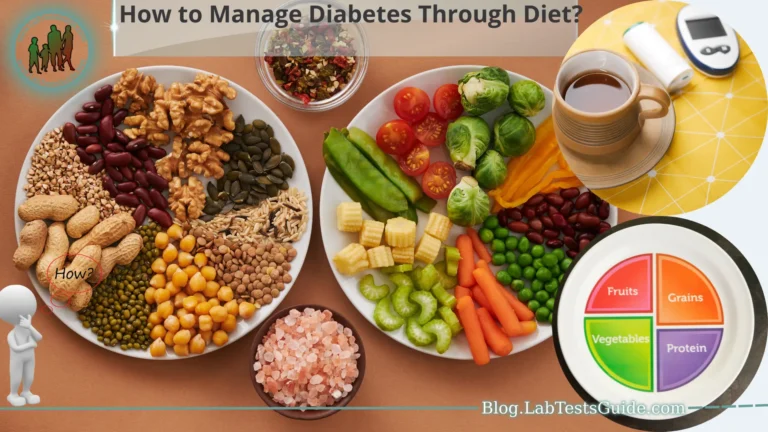Promoting healthy eating habits for vegetarians and vegans is essential for ensuring they meet their nutritional needs and maintain optimal health. Vegetarianism and veganism have gained popularity in recent years due to various reasons such as ethical concerns, environmental sustainability, and health benefits. However, adopting a plant-based diet requires careful attention to ensure an adequate intake of essential nutrients that are commonly found in animal products.

This guide aims to provide valuable information and strategies to promote healthy eating habits for vegetarians and vegans. It will explore the basics of vegetarianism and veganism, highlight the benefits of plant-based diets, discuss key nutrients of concern, and provide practical tips for meal planning and addressing challenges. By following these guidelines, individuals can embrace a nutritious and balanced vegetarian or vegan lifestyle that supports their overall well-being.
How to Understand Vegetarianism and Veganism:
What is a Vegetarian?
A vegetarian is an individual who excludes meat, poultry, and seafood from their diet. However, there are different types of vegetarians with varying dietary restrictions.
- Lacto-vegetarians consume dairy products along with plant-based foods.
- Ovo-vegetarians include eggs in their diet but avoid meat and dairy.
- Lacto-ovo vegetarians consume both dairy products and eggs while abstaining from meat and seafood.
- Pescatarians include fish and seafood in their diet but avoid other animal meats.
What is a Vegan?
Vegans follow a more strict plant-based diet that excludes all animal-derived products. In addition to avoiding meat, poultry, and seafood, vegans do not consume dairy, eggs, honey, or any other animal by-products. Veganism is not only about dietary choices but also extends to lifestyle choices, avoiding the use of animal-based products in clothing, cosmetics, and other areas.
Reasons for choosing a vegetarian or vegan lifestyle
People choose vegetarian or vegan lifestyles for a variety of reasons.
- Ethical concerns: Many individuals avoid animal products due to concerns about animal cruelty and the ethics of animal exploitation.
- Environmental sustainability: Plant-based diets have a lower environmental impact in terms of land use, water consumption, and greenhouse gas emissions compared to animal-based diets.
- Health benefits: Vegetarian and vegan diets have been associated with a reduced risk of chronic diseases such as heart disease, high blood pressure, type 2 diabetes, and certain cancers. Plant-based diets can also contribute to weight management and improved overall health.
- Understanding these distinctions and motivations can help in tailoring strategies to promote healthy eating habits for vegetarians and vegans while addressing their specific needs and concerns.
What are the Benefits of Vegetarian and Vegan Diets:
Here are some of the key advantages.
- Improved nutrient intake: Plant-based diets rich in fruits, vegetables, whole grains, legumes, nuts, and seeds provide a wide range of essential nutrients. These include dietary fiber, vitamins (such as vitamin C, vitamin E, and folate), minerals (such as potassium and magnesium), and phytochemicals (natural compounds with health-promoting properties). By focusing on nutrient-dense plant foods, vegetarians and vegans can often exceed the recommended intake of these vital nutrients.
- Lower risk of chronic diseases: Research suggests that well-planned vegetarian and vegan diets can contribute to a reduced risk of chronic conditions, including.
- Heart disease: Plant-based diets can help lower blood pressure, reduce cholesterol levels, and improve heart health markers.
Type 2 diabetes: Vegetarian and vegan diets high in fiber and low in saturated fats have been associated with a decreased risk of developing type 2 diabetes.
Certain cancers: A plant-based diet rich in fruits, vegetables, and antioxidants may help lower the risk of certain types of cancers, such as colorectal and prostate cancers.
Obesity: Plant-based diets tend to be lower in calories and saturated fats, making them beneficial for weight management and reducing the risk of obesity.
Key Nutrients for Vegetarians and Vegans:
When following a vegetarian or vegan diet, it is important to pay attention to certain key nutrients to ensure optimal health. Here are some essential nutrients that may require attention.
- Protein: Protein is vital for building and repairing tissues, as well as for various metabolic functions. Plant-based sources of protein include legumes (such as lentils, beans, and chickpeas), tofu, tempeh, seitan, quinoa, nuts, and seeds. Combining different plant protein sources throughout the day can help ensure an adequate intake of all essential amino acids.
- Iron: Iron is important for oxygen transport and plays a crucial role in preventing iron-deficiency anemia. Plant-based sources of iron include legumes, tofu, tempeh, fortified cereals, whole grains, nuts, seeds, and dark leafy greens. Consuming vitamin C-rich foods, such as citrus fruits or bell peppers, alongside iron-rich foods can enhance iron absorption.
- Calcium: Calcium is necessary for maintaining strong bones and teeth, as well as for muscle and nerve function. While dairy products are a common source of calcium, vegetarians and vegans can obtain calcium from plant-based sources such as fortified plant milks, calcium-set tofu, almonds, sesame seeds, leafy greens (like kale and bok choy), and calcium-fortified foods.
- Vitamin B12: Vitamin B12 is primarily found in animal-derived foods, and its deficiency is more common among vegetarians and vegans. It is essential for nerve function and red blood cell production. Vegans should ensure adequate B12 intake through fortified foods (such as plant milks, cereals, and nutritional yeast) or B12 supplements.
- Omega-3 fatty acids: Omega-3 fatty acids, particularly EPA and DHA, are important for brain health and reducing inflammation. Plant-based sources of omega-3s include flaxseeds, chia seeds, hemp seeds, walnuts, and algae-based supplements. However, the conversion of plant-based omega-3s to EPA and DHA in the body is limited, so vegans may consider an algae-based DHA supplement.
- Zinc: Zinc is involved in immune function, protein synthesis, and wound healing. Plant-based sources of zinc include legumes, whole grains, nuts, seeds, tofu, and tempeh. Soaking, fermenting, or sprouting these foods can improve zinc bioavailability. If needed, zinc supplements can be considered with appropriate medical advice.
- Vitamin D: Vitamin D is crucial for bone health and immune function. While the primary source of vitamin D is sunlight exposure, it can be challenging to obtain sufficient amounts, especially in certain geographic locations and during winter months. Vegans should consider vitamin D-fortified foods (such as plant milks and cereals) or vitamin D supplements if necessary.
Strategies for Promoting Healthy Eating Habits:
Here are some practical tips to promote a nutritious plant-based diet.
Education and awareness:
- Learn about the nutritional requirements of a vegetarian or vegan diet and understand the sources of key nutrients.
- Stay updated with reliable resources, books, websites, and documentaries that provide accurate information about plant-based nutrition.
Meal planning and preparation:
- Plan meals in advance to ensure a balanced intake of nutrients throughout the day.
- Include a variety of fruits, vegetables, whole grains, legumes, nuts, and seeds in your meal plans.
- Experiment with different cooking methods and recipes to keep meals interesting and enjoyable.
Incorporating a variety of plant-based foods:
- Aim to include a diverse range of plant foods to obtain a wide spectrum of nutrients.
- Explore different types of fruits, vegetables, grains, legumes, and plant-based protein sources.
- Include a mix of colors in your meals to ensure a variety of vitamins and minerals.
Balancing macronutrients:
- Pay attention to the balance of carbohydrates, proteins, and fats in your meals.
- Include protein-rich foods, such as legumes, tofu, tempeh, and seitan, in your meals.
- Incorporate healthy fats from sources like avocados, nuts, seeds, and plant oils.
Proper supplementation:
- Consider appropriate supplements, such as vitamin B12 and vitamin D, if your diet lacks these nutrients.
- Consult a healthcare professional or registered dietitian for personalized recommendations on supplementation.
Community support and networking:
- Connect with local vegetarian or vegan communities to exchange ideas, recipes, and support.
- Join online forums, social media groups, or attend plant-based events to connect with like-minded individuals.
- Engage in discussions and share experiences with others to stay motivated and inspired.
Overcoming Challenges:
Here are some common challenges that individuals may face and strategies for overcoming them.
Social situations and dining out:
- Communicate your dietary preferences to friends, family, and restaurant staff in advance.
- Offer to bring a vegetarian or vegan dish to social gatherings.
- Research vegetarian-friendly or vegan restaurants in your area.
- Be prepared with a list of suitable menu options or request modifications to accommodate your needs.
Dealing with cravings and temptations:
- Explore and experiment with plant-based alternatives to your favorite non-vegetarian or non-vegan dishes.
- Keep a variety of nutritious snacks on hand to satisfy cravings.
- Educate yourself about the benefits of a plant-based diet to stay motivated and focused on your goals.
- Seek support from online communities or local vegetarian and vegan groups for guidance and inspiration.
Handling nutritional concerns:
- Consult a registered dietitian specializing in plant-based nutrition to ensure you are meeting your nutrient needs.
- Learn about plant-based sources of key nutrients and incorporate them into your meals.
- Consider appropriate supplementation for nutrients that may be challenging to obtain solely from a plant-based diet, such as vitamin B12 or vitamin D.
Addressing cultural and family influences:
- Educate your family and loved ones about your decision and the reasons behind it.
- Offer to prepare plant-based dishes for family gatherings and share the deliciousness of vegetarian or vegan cuisine.
- Find common ground by focusing on shared values such as health, environmental sustainability, or compassion towards animals.
Remember that: transitioning to a vegetarian or vegan lifestyle is a personal journey, and it’s important to be patient with yourself. It may take time to adjust and find what works best for you. Celebrate your progress and small victories along the way, and don’t hesitate to seek support from like-minded individuals who can provide encouragement and guidance.
Encouraging Long-Term Commitment:
Here are some strategies to encourage sustained adherence.
- Setting realistic goals: Start by setting achievable short-term goals, such as incorporating more plant-based meals into your week or trying new vegetarian or vegan recipes.
Gradually increase the number of vegetarian or vegan meals over time, allowing your palate and cooking skills to adapt. - Celebrating milestones: Celebrate milestones and achievements along your journey, such as completing a month of being vegetarian or vegan or reaching a personal health or environmental goal.
Treat yourself to a special meal at a favorite vegetarian or vegan restaurant to mark significant milestones. - Continuous learning and growth: Stay informed about the latest research, recipes, and resources related to vegetarian and vegan lifestyles.
Explore different cooking techniques, flavors, and cuisines to keep your meals exciting and diverse.
Attend plant-based workshops, cooking classes, or food festivals to expand your knowledge and skills. - Seeking professional guidance: Consider working with a registered dietitian who specializes in plant-based nutrition.
A dietitian can provide personalized guidance, help you navigate any challenges, and ensure that your nutrient needs are being met. - Building a support system: Connect with like-minded individuals through local vegetarian or vegan groups, online forums, or social media platforms.
Share your experiences, challenges, and successes with others on a similar journey.
Engage in discussions, seek advice, and offer support to fellow vegetarians and vegans.
FAQs:
Can vegetarians and vegans meet their protein needs without consuming meat?
Yes, vegetarians and vegans can obtain sufficient protein from plant-based sources such as legumes, tofu, tempeh, seitan, quinoa, nuts, and seeds. It is important to include a variety of these protein-rich foods throughout the day.
How can vegetarians and vegans ensure they get enough iron in their diet?
Plant-based sources of iron include legumes, tofu, tempeh, fortified cereals, whole grains, nuts, seeds, and dark leafy greens. Consuming vitamin C-rich foods alongside iron-rich foods can enhance iron absorption. For individuals with low iron levels, supplements may be recommended under medical guidance.
What are good sources of calcium for vegetarians and vegans?
Vegetarians and vegans can obtain calcium from plant-based sources such as fortified plant milks, calcium-set tofu, almonds, sesame seeds, leafy greens (like kale and bok choy), and calcium-fortified foods. It’s important to ensure an adequate intake of calcium for bone health.
Do vegetarians and vegans need to take vitamin B12 supplements?
Yes, vitamin B12 is primarily found in animal-derived foods, and its deficiency is more common among vegetarians and vegans. It is recommended for vegans to take vitamin B12 supplements or consume B12-fortified foods like plant milks, cereals, or nutritional yeast.
Can vegetarians and vegans get enough omega-3 fatty acids without consuming fish?
Plant-based sources of omega-3s include flaxseeds, chia seeds, hemp seeds, walnuts, and algae-based supplements. However, it is important to note that the conversion of plant-based omega-3s to the active forms (EPA and DHA) in the body is limited. Vegans may consider algae-based DHA supplements for adequate intake.
How can vegetarians and vegans ensure they meet all their nutrient needs?
To meet all nutrient needs, it is important to follow a well-planned, varied, and balanced plant-based diet. Including a wide range of fruits, vegetables, whole grains, legumes, nuts, seeds, and fortified foods can help provide a diverse array of essential nutrients. Consulting with a registered dietitian who specializes in plant-based nutrition can be helpful.
Conclusion:
Promoting healthy eating habits for vegetarians and vegans is crucial for their overall well-being. By understanding the basics of vegetarianism and veganism, recognizing the benefits of plant-based diets, and being aware of key nutrients of concern, individuals can make informed choices to support their health goals. Incorporating strategies such as education, meal planning, incorporating a variety of plant-based foods, balancing macronutrients, proper supplementation, and seeking community support can help overcome challenges and maintain a long-term commitment to a vegetarian or vegan lifestyle.






